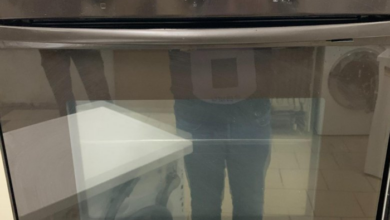What is a debt collector and why are they contacting me

At some point in life, many individuals find themselves in a situation where they owe money. Whether it’s from a credit card, personal loan, or unpaid medical bills, debts can pile up. When someone fails to meet their financial obligations for an extended period, they may start hearing from a debt collector. But what exactly is a debt collector, and why are they reaching out?
What is a Debt Collector?
A debt collector is an individual or agency hired by a creditor to recover an unpaid debt. Creditors, such as banks, credit card companies, or medical institutions, often attempt to collect overdue payments themselves. However, when they are unsuccessful over a certain period, they may turn to private debt collectors, whose primary role is to recover money that is past due.
Debt collectors can operate in different capacities. Some work directly for the company to which the money is owed, while others are third-party agencies. In some cases, the original creditor may sell the debt to a collection agency, meaning the collector now owns the debt and has the right to pursue the debtor for payment. Regardless of their role, the function of a debt collector is to recover the unpaid amount, often adding interest or fees to the original debt.
Why Are Debt Collectors Contacting Me?
If you’re being contacted by a debt collector, it means that an account you had has gone unpaid for a period of time. Here are some of the most common reasons a debt collector may reach out:
- Unpaid Bills: If you’ve fallen behind on payments for credit cards, utilities, medical services, or any other financial obligation, the company you owe may have referred your account to a debt collection agency.
- Purchased Debt: In some cases, the original company you owed money to might have sold your unpaid account to a private debt collector. This often happens when the original creditor believes they are unlikely to recover the money themselves. The debt collector who purchases the account now owns it and has the right to seek payment.
- Errors or Mistaken Identity: While less common, sometimes debt collectors may contact individuals by mistake due to clerical errors or confusion over similar names. If you believe that you do not owe the debt in question, it’s essential to communicate with the collector and dispute the claim if necessary.
How Debt Collectors Work
Debt collectors are known for their persistence, and many people find their tactics intimidating. However, it’s important to know that, while debt collectors can be persistent, they must abide by legal regulations. In many countries, including the United States, debt collection is regulated by specific laws like the Fair Debt Collection Practices Act (FDCPA).
Some of the activities that are generally prohibited by law include:
- Harassment: Debt collectors cannot engage in threatening behavior, use abusive language, or contact you at inconvenient times (like very early in the morning or late at night).
- Deception: Collectors cannot lie about the amount you owe, claim to be attorneys if they aren’t, or make false threats about what will happen if the debt isn’t paid.
- Publicizing Your Debt: They are not allowed to disclose details about your debt to your employer, family, or friends without your consent.
If you feel that a debt collector is violating these rules, you can report them to relevant authorities or seek legal advice.
How to Respond to a Debt Collector
If you’ve been contacted by a debt collector, the first step is to confirm the legitimacy of the debt. You are entitled to ask for verification of the debt, including details about the original creditor, the amount owed, and how it was calculated. You can request this information in writing, which is known as a debt validation letter.
Once you’ve confirmed the debt, there are several ways to handle it:
- Pay the Debt: If you acknowledge the debt and are financially able, paying it off can stop further collection efforts.
- Negotiate a Settlement: In some cases, debt collectors may be willing to settle the debt for less than the full amount. This is especially true if they purchased the debt for a fraction of its value. Negotiating a payment plan is another option if you can’t pay the full amount immediately.
- Dispute the Debt: If you believe the debt is incorrect or has already been paid, you have the right to dispute it. Debt collectors must cease collection efforts until the dispute is resolved.
- Seek Legal Assistance: If you’re unsure of your rights or are facing aggressive collection tactics, consulting a lawyer who specializes in debt collection can provide guidance and protection.
Dealing with Private Debt Collectors
Private debt collectors, especially those who have purchased debts, may operate differently than collections departments within large companies. They often work on commission or purchase the debt for a small percentage of its value, giving them significant motivation to recover as much as possible. However, private debt collectors are still bound by the same laws as other collectors, including the rules laid out in the FDCPA.
When dealing with private debt collectors, it’s important to stay informed about your rights. Be wary of any offers that seem too good to be true or demands that feel excessive. You should always get any agreement in writing and ensure that any settlement fully resolves the debt.
Conclusion
Being contacted by a debt collector can be stressful, but it’s important to remember that you have rights and options. Debt collectors, whether part of a large agency or private debt collectors, must operate within the confines of the law. By understanding their role and how to respond, you can take control of the situation and find the best path forward for resolving your debt.
Always approach these situations with caution, confirm the legitimacy of any claims, and don’t hesitate to seek professional assistance if needed. Managing debt responsibly can prevent the need for future interactions with collectors, giving you greater financial freedom and peace of mind.



